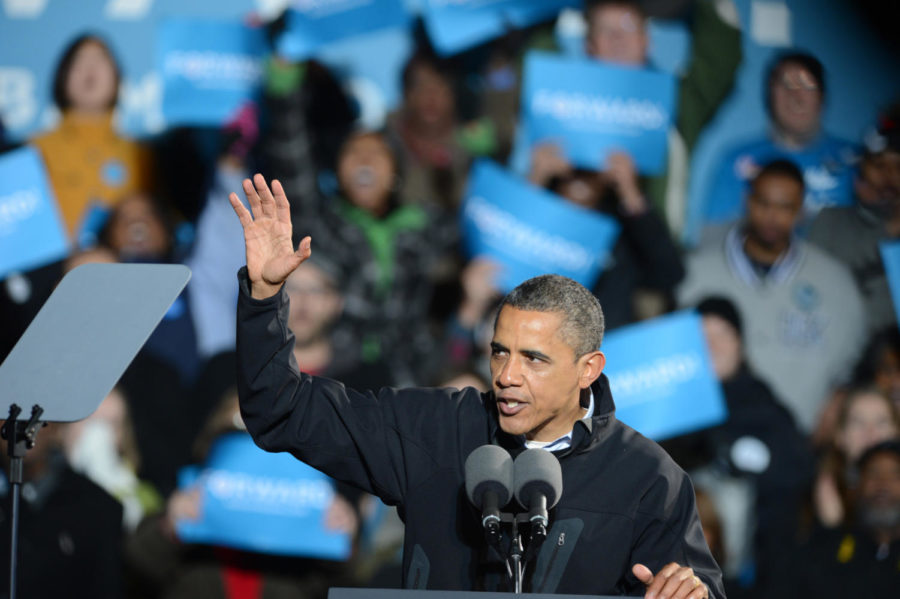President Barack Obama wins re-election
November 7, 2012
The White House remains blue after Tuesday’s presidential contest as President Barack Obama won re-election in a hotly contested and bitterly fought campaign against Republican challenger Mitt Romney.
Despite polls showing a virtual dead heat in the days leading up to the elections, Obama was able to pull out key victories in swing states such as Colorado, Wisconsin, Iowa, Nevada and most importantly, Ohio to secure the necessary 270 electoral votes to win the presidency.
The night started off with the predicted states going to their respective candidates: New England and most of the northeast United States went to Obama and southern states went to Romney, though the race was close for a while in North Carolina. However, Obama took key states that were projected to be toss-ups between the two candidates.
First New Hampshire and Wisconsin went to Obama. Then, like a snowball effect, Iowa, Colorado and Nevada followed suit. By 10 p.m. CDT, most news outlines were confident enough in the amount of precincts reported and percentages leaning Democrat to call the crucial state of Ohio in favor of Obama thus projecting him to win the re-election
“I felt like, as I was watching the returns come in, that Obama was going to win by a more comfortable margin than people thought,” said Dianne Bystrom, director of the Catt Center for Women and Politics. “But the polls were incredibly accurate. In fact, they under-predicted the president.”
Furthermore, this means Obama will return to office with the exact same congress he has had the last two years: Republican-controlled House of Representatives and Democrat-controlled Senate, both of whom solidified their control earlier in the night. After a striking loss to the Republican Party on the presidential level, however, party leaders will now need to rethink a strategy, Bystrom said.
“Certainly, the GOP needs to think about where their party is. They’ve stuck to their guns and this is where they’ve gotten,” Bystrom said. “They’re becoming the party of old white men, and they need to do a better job reaching out to Hispanics and women.”
Steffen Schmidt, university professor of political science, largely agreed with Bystrom’s analysis of the Republican Party.
“The pendulum swung back tonight after a conservative Tea Party victory [in 2010],” Schmidt said. “The Republicans lost women voters, young voters and Hispanics.”
Going forward for the Republican Party, Schmidt offered a bit of additional advice.
“The party now needs to search deep in its soul to figure out how to regain a bigger share of those crucial and growing constituencies,” Schmidt said.
Romney’s Republican campaign failed at capturing these key demographics, in some cases losing by double digits to Obama, despite Romney’s perceived views on issues like abortion being more moderate than the more right-leaning parts of his party.
“The die-hards were never that excited about Romney,” Bystrom said. “Hopefully some leadership steps up in the party that trend toward the middle of the political spectrum.”
In the end, Bystrom also argued voters’ decisions came down to how well they knew their candidate.
“At the end of the day, at least people knew who Obama was,” Bystrom said. “People really didn’t know who Romney was.”
The question that looms is how Obama will govern in his second term. With Republicans still controlling the House of Representatives, they will maintain a check on his policies and can steer legislation in their favor to a certain degree.
“Even though Obama won tonight, we’re still going to have a divided government,” Bystrom said. “I think Obama is very bright, and he’ll learn from his first term. … I think he wants to have a legacy and wants to achieve something, I think he’s going to try to work with the GOP, but they have to be willing to work with him.”













